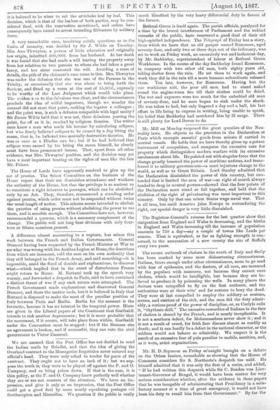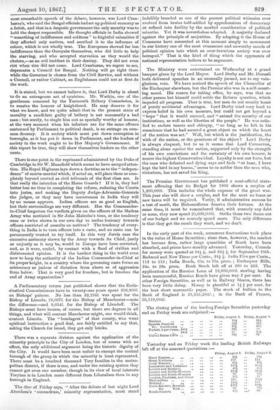Mr. H. D. Seymour on Friday se'nnight brought on a
debate on the Orissa famine, remarkable as showing that the House of Commons considers Sir S. Northeote's despatch too mild. He himself admitted that it was only the first of a series, and added, " If he had written this despatch while Sir C. Beadon was Lieu- tenant-Governor of Bengal, it would have been matter for very serious consideration whether, after the evidence in these papers that he was incapable of administering that Presidency in a satis- factory manner at a time of great emergency, it would not have been his duty to recall him from that Government." By far the most remarkable speech of the debate, however, was Lord Cran- borne's, who said the Bengal officials had set up political economy as a fetish, and that in a despotic government the only security was to hold the despot responsible. He thought officials in India showed "something of indifference and coldness" to frightful calamities if they affected only natives, and ascribed it to the influence of colour, which is not wholly true. The Europeans showed far less indifference than the Ooreyahs themselves, who did little to help the starving, and who accepted starvation as they would the cholera,—as an evil incident in their destiny. They did not even riot when rice did not come. Lord Cranborne, we regret to see, deprecates a Council for Bengal. Nothing will go right there while the Governor is chosen from the Civil Service, and without a Council, or rather Cabinet, an Englishman could not at first do the work.































 Previous page
Previous page